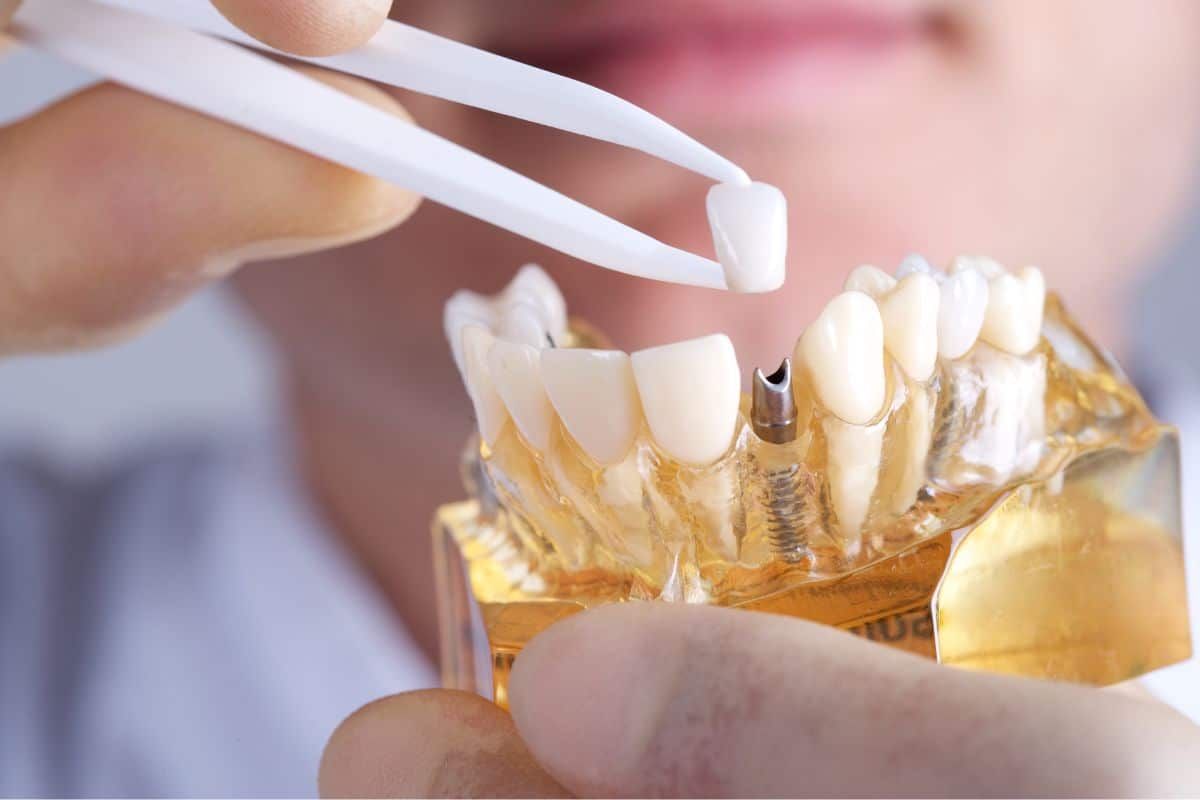Infected Dental Implant: Is There Still Hope for Saving It?

When it comes to maintaining the natural appearance and functionality, implants are the most reliable option for replacing missing teeth. Yet, like natural teeth, implants can face complications, including infection. If you suspect an infection around your dental implant, don’t worry—there’s hope for saving it. This blog discusses the causes, risks, symptoms, and treatment options for infected implants to help you take the right steps.
What Causes Infections in Dental Implants?
Infections around dental implants, known as peri-implantitis, occur when bacteria accumulate and infect the tissue. Here are common causes:
Poor Oral Hygiene: Without thorough brushing and flossing, bacteria can build up around implants.
Smoking: When you smoke tobacco, it often compromises your gum health and raises the risk of implant infection.
Health Conditions: Diseases like diabetes can weaken the body’s immune response to infection, even if it is near the implant site.
Gum Disease History: People with a previous history of periodontal disease are at higher risk for developing implant infections.
Implant Misalignment: Poorly positioned implants can sometimes create small spaces where bacteria thrive.
Understanding these causes can help patients reduce the chances of infection and maintain optimal implant health.
Recognizing the Signs of an Infected Implant
Detecting early symptoms can make a big difference in saving an infected implant. Look out for these signs:
Red, Swollen Gums: Inflammation around the implant site can indicate infection.
Pain or Tenderness: Sensitivity when chewing or touching the area may be a warning sign.
Bleeding Gums: Bleeding while brushing or flossing around the implant can suggest bacterial buildup.
Bad Taste or Odor: Persistent bad breath or an unpleasant taste often indicates infection.
Loose Implant: If the infection is severe, the implant may feel loose or unstable, making eating, speaking, or chewing difficult.
Your dentist can help you combat the situation if you come across any of these symptoms of implant infection. Quick action can prevent the infection from spreading and potentially save the implant.
Foods to Keep Your Dental Implants Healthy
Eating a balanced diet supports both your overall health and the longevity of your dental implants. Here are some implant-friendly foods:
- Leafy Greens: Rich in calcium and folic acid, leafy greens strengthen bones and gums. Spinach, kale, and collard greens are excellent choices for maintaining oral health.
- Crunchy Vegetables: Carrots, celery, and bell peppers stimulate saliva production, which helps reduce harmful bacteria around implants and keeps your mouth clean and hydrated.
- Dairy Products: Milk, yogurt, and cheese provide calcium and phosphorus, which are essential for strong bones. These nutrients help stabilize implants and protect jaw health.
- Lean Proteins: Chicken, fish, and legumes contain protein and essential minerals that support tissue healing. Protein-rich foods aid recovery after dental procedures and promote gum health.
- Nuts and Seeds: Almonds, walnuts, and sunflower seeds contain healthy fats, calcium, and magnesium, which support jawbone strength and promote long-lasting implant stability.
Treatments to Combat Dental Implant Infection
Depending on how advanced the infection is, many treatments are available for infected implants. Here’s what your dentist might recommend:
Professional Cleaning: Deep cleaning of the area surrounding the implant may help remove bacteria and lessen inflammation.
Antibiotics: Dentists often prescribe antibiotics to manage infection, especially in the early stages.
Laser Therapy: Lasers can eliminate infected tissue without harming the implant, effectively targeting bacteria.
Debridement: Removing infected tissue surrounding the implant can help the body heal and stop bacterial spread.
Bone Grafting: If infection has caused bone loss, a bone graft may restore support around the implant.
Surgical Intervention: In severe cases, surgery could be necessary to stabilize the implant and remove contaminated tissue.
These treatment options work to control the infection and preserve the implant’s stability, providing a second chance for your dental implant.
Can You Prevent Implant Infections?
Prevention is always better than cure when it comes to implant infections. The following actions can be taken:
Practice Good Oral Hygiene: Brush and floss daily, giving special attention to the implant area.
Regular Dental Check-Ups: Routine visits help catch early signs of infection before they worsen.
Avoid Smoking: Smoking delays healing and increases the chance of infection.
Eat a Balanced Diet: A nutritious diet supports immune health, which helps fight infections.
Manage Health Conditions: Keeping conditions like diabetes under control can lower infection risks.
Adopting these habits can help you protect your implants and ensure they last for many years.
An infected dental implant doesn’t always mean it’s a lost cause. Many effective treatments can address the infection and help save your implant. With prompt treatment from your dentist and maintaining good oral hygiene, you can yield all the benefits of prosthetic teeth.
At Joshua M. Ignatowicz, DMD & Associates, our experienced team is dedicated to helping you achieve a healthy, functional smile. Visit our dental office in Henderson, NV, to explore personalized prosthetic teeth solutions designed to meet your unique needs.

